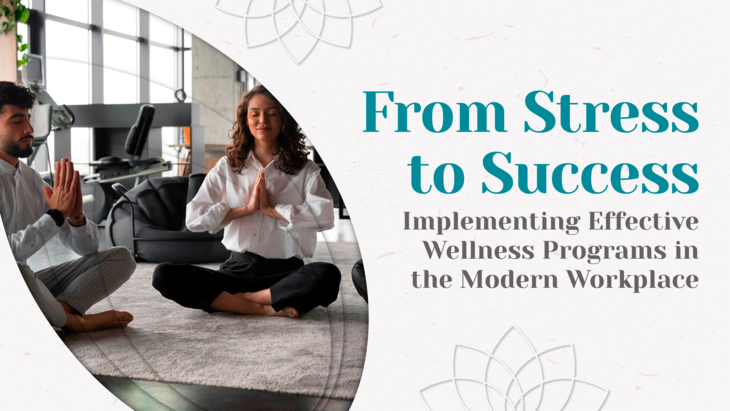In today's modern society, maintaining a healthy work-life balance has become increasingly challenging. The demands of a fast-paced world often leave us feeling overwhelmed as we try to balance professional commitments with personal well-being. It is crucial, however, to prioritize our happiness and success by effectively managing both aspects of our lives. In this article, we will delve into ten useful strategies that can help us strike a harmonious balance between work and life, enabling us to lead fulfilling and prosperous lives.
Understanding Work-Life Balance
Achieving a healthy work-life balance goes beyond merely dividing time between work and personal life. It's about understanding the nuanced art of managing these two aspects in a manner that fosters overall well-being and satisfaction. Rather than a strict time-based division, it entails a thoughtful integration that considers individual priorities, allowing individuals to navigate their professional and personal spheres harmoniously.
Before delving into effective strategies, it's essential to grasp the true essence of work-life balance. It's not a rigid 50-50 split; it's a dynamic equilibrium that acknowledges the ebb and flow of life's demands. This involves recognizing that balance looks different for everyone and requires a personalized approach that prioritizes mental and emotional health alongside professional commitments.
Balancing Act: Assessing Your Work-Life Harmony
Ever felt overwhelmed by the demands of work and life? Take for a moment to evaluate your present circumstances. Reflect on your work-life balance, pinpoint areas that need improvement, and delve into understanding your priorities. This self-awareness not only unlocks the door to a healthier balance but also empowers you to make intentional choices that align with your values. By taking this crucial first step, you pave the way for a more fulfilling and harmonious life, where work complements rather than overwhelms your personal well-being.
In the hustle of daily life, it's easy to lose sight of balance. Start by evaluating how your time is allocated between work and personal activities. Identify patterns, recognize stress points, and acknowledge where adjustments can be made. This introspective journey sets the foundation for a more balanced and purposeful life, where your time and energy align with your priorities, leading to a happier and more fulfilling existence.
Balancing Life: Realistic Goal Setting
In the journey towards a more balanced life, setting realistic goals plays a pivotal role. It's not just about creating a checklist; it's about understanding your capabilities and aligning your aspirations with what's achievable. Realistic goals provide a roadmap, guiding you through a path that's both challenging and attainable. This approach prevents overwhelm, boosts confidence, and ensures that your efforts contribute meaningfully to your overall well-being.
When you set realistic goals, you're essentially laying the foundation for sustainable success. It's about finding that sweet spot between ambition and practicality, allowing you to make steady progress without succumbing to unnecessary stress. Realistic goals are the stepping stones that transform your aspirations into tangible achievements, fostering a sense of accomplishment and motivation as you navigate the intricate balance between your personal and professional life.
Mastering Task Priority: Boost Efficiency, Enhance Life
In the hustle of daily life, mastering the art of prioritizing tasks is a game-changer. Understanding the balance between urgency and importance is key to unlocking effective time management. By honing this skill, you not only navigate through your to-do list more efficiently but also ensure that the crucial facets of your life get the focus they rightly deserve. It's a strategic move toward reclaiming control over your schedule and directing your efforts where they matter most.
Imagine a world where your time aligns seamlessly with your priorities. Learning to prioritize tasks empowers you to do just that. This valuable skill is a compass guiding you through the demands of your day, helping you allocate your energy to what truly matters. As you cultivate this proficiency, watch how your productivity soars, leaving you with not just completed tasks, but a well-balanced and fulfilling life.
Time Management Techniques: Strategies for Balance and Productivity
In the whirlwind of daily tasks, mastering time management is your key to reclaiming control and achieving success. Embrace proven techniques such as the Pomodoro Method and Eisenhower Matrix to enhance productivity. These methods empower you to break down tasks, prioritize effectively, and maximize every moment. By integrating these time-tested strategies into your routine, you'll not only meet deadlines with ease but also carve out precious time for personal growth and leisure.
Effective time management isn't just about squeezing more tasks into your day; it's a transformative journey toward a balanced and fulfilling life. Discover the art of saying no, setting boundaries, and strategically allocating your time to align with your goals. As you navigate the intricacies of time, you'll unlock a newfound sense of control, reduce stress, and pave the way for a harmonious blend of professional achievements and personal well-being.
Mastering the Art of Saying No: A Key to Work-Life Harmony
In the pursuit of a balanced life, one crucial skill to master is the art of saying no. Understanding your limits and resisting the urge to overcommit is essential for maintaining overall well-being. Politely declining when necessary empowers you to prioritize your commitments, creating space for personal growth and preventing the all-too-common pitfalls of burnout.
Learning to say no is not a rejection; instead, it's a strategic decision to safeguard your time and energy. It's a valuable tool in your arsenal, allowing you to focus on what truly matters and ensuring a sustainable approach to both your professional and personal life. Embrace the power of 'no' to nurture a healthier, more fulfilling balance in your day-to-day journey.
The Importance of Physical Activity
Physical activity is not just about staying fit; it's a cornerstone of a vibrant and fulfilling life. Engaging in regular exercise brings a myriad of benefits, from boosting energy levels and enhancing mood to reducing stress. It's a holistic approach to well-being that goes beyond the physical, positively impacting mental and emotional health.
Incorporating physical activity into your routine is a commitment to longevity and overall wellness. Whether it's a brisk walk, a challenging workout, or a calming yoga session, each moment of movement contributes to a healthier, more balanced lifestyle. Embrace the importance of physical activity, not just as a habit but as a joyful journey towards a happier and more energized you.
Cultivating Meaningful Connections for Fulfillment
Building and nurturing relationships is a cornerstone of a fulfilling life. In our fast-paced world, taking the time to connect with others on a meaningful level is often overlooked but incredibly rewarding. Whether it's fostering close ties with family, deepening friendships, or cultivating positive professional relationships, investing in connections brings joy, support, and a sense of belonging. These relationships not only contribute to personal well-being but also create a strong support system, offering guidance and encouragement through life's ups and downs.
In the digital age, where virtual interactions abound, the essence of nurturing relationships remains paramount. Beyond social media likes and comments, genuine connection involves active listening, empathy, and shared experiences. By prioritizing and cherishing relationships, individuals can navigate life with a sense of community, enhancing both their personal and professional journeys.
Benefits of Hobbies: Find Joy & Relaxation
Engaging in hobbies and leisure activities is crucial for leading a balanced and fulfilling life outside of work. These activities provide an opportunity to unwind, relax, and find joy in the things we love to do. Whether it's reading a captivating book, creating art through painting, or tending to a garden, these hobbies offer a respite from the daily stresses and pressures of work.
Hobbies and leisure activities have numerous benefits for our mental, emotional, and physical well-being. They provide an outlet for self-expression, creativity, and personal growth. By indulging in activities that bring us joy, we can tap into our passions and interests, which in turn boosts our overall happiness and satisfaction in life. Engaging in these activities also helps to relieve stress, reduce anxiety, and promote a sense of calm and relaxation. Through hobbies, we can rejuvenate and recharge, allowing us to return to our work with renewed energy and focus.
Furthermore, hobbies and leisure activities foster social connections and engagement with others who share similar interests. Whether it's joining a book club, attending art classes, or participating in community gardening projects, these activities provide opportunities for social interaction, networking, and forming new friendships. This social aspect enhances our sense of belonging and well-being, as we connect with like-minded individuals who share our enthusiasm and passions.
Overall, hobbies and leisure activities are much more than just pastimes. They play a vital role in our overall well-being, allowing us to find joy, relaxation, and personal growth outside of the demands of work. By dedicating time to these activities, we can lead more fulfilling lives, nurturing our mental, emotional, and physical health, while also fostering social connections and personal development.
Reflection and Continuous Improvement
n the journey toward a balanced life, "Reflection and Continuous Improvement" stand as guiding principles. Taking moments to reflect allows us to assess our work-life balance, identifying areas for growth and adjustment. It's a mindful pause, a chance to celebrate victories and learn from challenges. Continuous improvement goes hand in hand, encouraging a dynamic approach. By embracing change, tweaking strategies, and staying adaptable, we ensure that our pursuit of balance is a perpetual, evolving process. Together, reflection and continuous improvement become the compass guiding us towards a harmonious integration of work and life, fostering sustained well-being and personal fulfillment.
Conclusion
In conclusion, attaining a healthy work-life balance is a continuous journey that necessitates self-reflection, deliberate action, and flexibility. Through the implementation of the strategies discussed, individuals can establish a lifestyle that fosters both career achievement and personal satisfaction. By prioritizing their well-being, taking breaks, setting boundaries, and seeking support when necessary, individuals can cultivate a harmonious equilibrium between work and personal life, ultimately leading to a more fulfilling and happier existence.
FAQs
Q1. How long does it take to achieve a healthy work-life balance?
Achieving a healthy work-life balance is a gradual process. It varies for each individual, but consistent effort and prioritization are key.
Q2. Are these strategies applicable to all professions?
Yes, the strategies discussed are adaptable to various professions and lifestyles. They can be tailored to suit individual needs.
Q3. Is it possible to have a successful career while maintaining work-life balance?
Absolutely. In fact, a balanced approach often enhances career success by preventing burnout and promoting overall well-being.
Q4. How can I overcome the guilt of taking breaks during work hours?
Recognize that breaks are essential for productivity and well-being. Taking breaks is not a sign of slacking off but a strategic move for sustained efficiency.
Q5. What if my work demands fluctuate, making balance challenging?
Adaptability is crucial. Learn to adjust your strategies based on workload fluctuations, ensuring a continuous effort towards balance.






Leave a reply